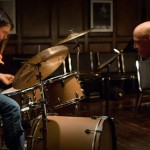MAPS TO THE STARS (September 26, 2014)
The 71-year-old Canadian Director David Cronenberg could, before the excellent History of Violence and Eastern Promises, be categorised as a Sci-Fi horror director with an affinity to bugs, diseases, and human tissue.
The Freud/Jung biopic that followed, entitled A Dangerous Method, has signalled a shift. Now, the diseases inflicting his significantly affluent protagonists are more psychological than physical.
If you are not exactly shocked by his films, then you will certainly feel disturbed by them in some way. Cronenberg’s Maps to the Stars, a strange blend of Hollywood satire and human melodrama, succeeds in shocking more than in disturbing.
Two years ago Cronenberg collaborated with novelist and writer Bruce Wagner on the film Cosmopolis in which a 28-year-old asset manager millionaire (aptly played by then 26-year-old show-biz millionaire Robert Pattinson, The Twilight Saga) is driven in his stretch limousine down a fictitious Manhattan’s metaphorically self-destructive roads.
Those who stayed awake might conclude that the millionaire was adrift in a capitalist system that was killing him, spiritually, morally and potentially physically.
The dangers of extreme wealth re-emerge in Maps to the Stars and becomes another incurable illness. In this second collaboration between Cronenberg, Wagner and Pattinson, Pattinson plays would-be-script-writer Jerome Fontana, who drives a limousine in Beverly Hills, and is the practical means of linking the main characters of Maps to the Stars.
It is worth noting that script-writer Wagner, who dropped out of Beverly Hill High School to drive a limousine from the Beverly Hills Hotel, has had a fly-on-the-wall view of the excesses of show-biz society that he describes in his articles and novels.
This is evident in the hyperbolic Maps to the Stars, the film that finally forced Cronenberg to film on location in the USA.
On the surface, The Weiss family is another successful Hollywood dynasty. Dr Stafford Weiss (John Cusack) is a TV psychologist who uses his lucrative programme to bag wealthy celebrity clients, none needier than Havana Segrand (Julianne Moore).
Havana is a 40-something actress desperate for a come-back. She figuratively and literally lives in the shadow of her screen legend mother, Clarice Taggart (Sarah Gadon), who visits her as a taunting ghost.
Dr Weiss’s wife Cristina (Olivia Williams) is the ambitious manager of the career of her 13-year-old actor son Benjie (Evan Bird). Benjie is a young teen sensation after the series Bad Babysitter, a kind of sinister Home Alone spin- off.
Although Dr Weiss’s ego is fed by the success of his son, Cristina has to convince studio executives that Benjie, who is recently out of a drug rehab centre, is insurable for the new series. While drugs are strictly off limits, Benjie attends peer group parties where he can obtain whatever he wants.
What no one in the Weiss family wants is the return of Benjie’s pyromaniac sister Agatha (Mia Wasikowska), who has been in a mental hospital since a house fire that scarred her body and nearly killed Benjie.
But, of course, Agatha does return to LA, driven from the airport in Jerome’s limousine and landing a job as Havana’s PA. Is Agatha returning to make amends, as she claims, or to finish unfinished business with her beloved younger brother?
Julianne Moore won the Best Actress award at Cannes for her incredibly brave performance as Havana, and, just as courageously, her character wears you out before she can gain your sympathy.
All of the performances are top notch but slightly removed, as if the actors are defying you to identify, let alone sympathise, with their characters. Evan Bird is truly frightening as the pampered, self-possessed poor-little-rich-kid who has lived his life in such a rarefied atmosphere that he is as dangerous as his sister.
Like the Pre-Raphaelite painters, Cronenberg and Wagner are not painting reality but hyper-reality, and Cronenberg’s evolved connection with the diseased mind sneaks into this satire of a celebrity-obsessed culture.
And so we have a Hollywood satire that resembles Cronenberg’s Sci-Fi medical films, with their clinical sets and other-worldly atmosphere. But within this, we have two stories of almost comically dysfunctional families, Havana’s and, of course, the Weiss’s.
If the problematic ending indulges one sickness and infliction too many, Cronenberg manages to do the impossible in holding this complex nightmare world together long enough to let it bleed out.
by Joyce Glasser, Mature Times film reviewer




